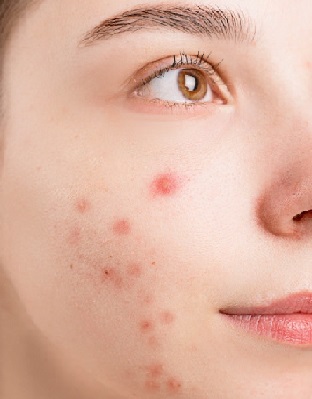Have you tried everything to get rid of your acne but still have pimples on your face? Don’t let yourself down. To achieve cleaner skin, you typically need to make a few changes to live the happy life you’ve always wanted, free of the burden of acne.
Allow Four Weeks for the Effects of Acne Treatment to Kick In
Switching products every few days might aggravate your skin and lead to fresh outbreaks. Changing acne products every few days may appear to be a good strategy, but it might exacerbate acne. Acne treatment takes time to work. Acne therapy takes time to take effect.
You should experience benefits in 4 to 6 weeks if a treatment is beneficial for you. Clearing can take anywhere from two to three months and sometimes much longer. Continue to use the therapy if you detect an improvement. You should continue to take the acne treatment even if your acne appears to be clearing up. This patience will help to avoid future breakouts.
Deal With the Many Causes of Acne
If you don’t notice improvements after 4 to 6 weeks, add a second acne product to your regimen. Naturally, the second treatment should focus on a different cause of acne. Your second treatment should include another acne-fighting ingredient if you’re using benzoyl peroxide for acne.
You can find these substances in acne treatment that you can buy online or at a shop. A prescription is not required. Here’s what the different components focus on to assist you in choosing another product:
- Benzoyl peroxide reduces P. acnes bacteria.
- Adapalene gel, for example, is a retinoid that unclogs pores and reduces oiliness.
- Salicylic acid reduces swelling and unclogs pores.
Follow the Directions
While using skincare products may appear simple, the amount and frequency you apply it can significantly impact. Make sure you’re following the instructions exactly. If a dermatologist designed your treatment plan, follow their directions and use whatever the dermatologist recommended.
Wash Your Face Regularly
Acne-prone skin is very fragile, so it’s important that you only wash it before and after sleeping and when you sweat. Washing it more than that might irritate your skin and worsen acne, so you should ideally try to limit it to no more than twice per day. Dermatologists advise that you wash your face after doing the following:
- When you have a sweaty face
- Get up in the morning
- Getting ready for a good night’s sleep
Use Acne-Free Skincare and Cosmetics
Since some skincare products can still cause acne to some people, you may need to try experimenting on a few before finding a specific one that works for you. These items are labeled so you may see one of the following on the package:
- Non-comedogenic
- Non-acnegenic
- Oil-free
- Will not clog pores
Treat All of Your Acne-Prone Skin
You should treat all of your acne-prone skin with acne medication, not just the areas that broke out when applying acne treatment. When dealing with acne-prone skin, using a thin coating could aid in the healing of current outbreaks and the prevention of new ones.
Stop Scrubbing Your Acne-Prone Skin
Scrubbing irritates acne-prone skin, making it worse. If your skin seems greasy, filthy, or grimy, you might be eager to scrub it clean, but don’t! Scrubbing your face is a quick way to further irritate it, leading to even more acne breakouts.
Avoid Touching, Picking, and Popping Your Acne
While popping a pimple can seem like the easiest way to get rid of it, it could make things worse. Because of this, touching, picking, or popping your acne should be avoided.
Seek the Advice of a Dermatologist
Skincare is a type of healthcare. Seek professional help if you still have acne after trying these options. A dermatologist can design a treatment plan that is appropriate to your requirements and can help you avoid your acne getting worse. Contacting a dermatologist can help when:
- Acne cysts and nodules get caused by acne
- Acne hasn’t cleared up with over-the-counter medication
- It makes you feel uneasy, and you want your skin to be clearer.
Incorporation Stem Cells Into Your Skincare Regimen
In skincare, stem cells are a huge multitasker; from anti-aging to just repairing injured skin, stem cell serum will target specific regions to assist in healing. Wrinkles, fine lines, loss of suppleness, and dark patches are all signs of aging skin, which is damaged skin. However, stem cells stimulate cell development and collagen production while preserving the skin from future injury and moisture loss.
*****
From time to time, GraniteGrok accepts content from third parties (posts, or additional links after initial publication) from which we may or may not receive compensation.




